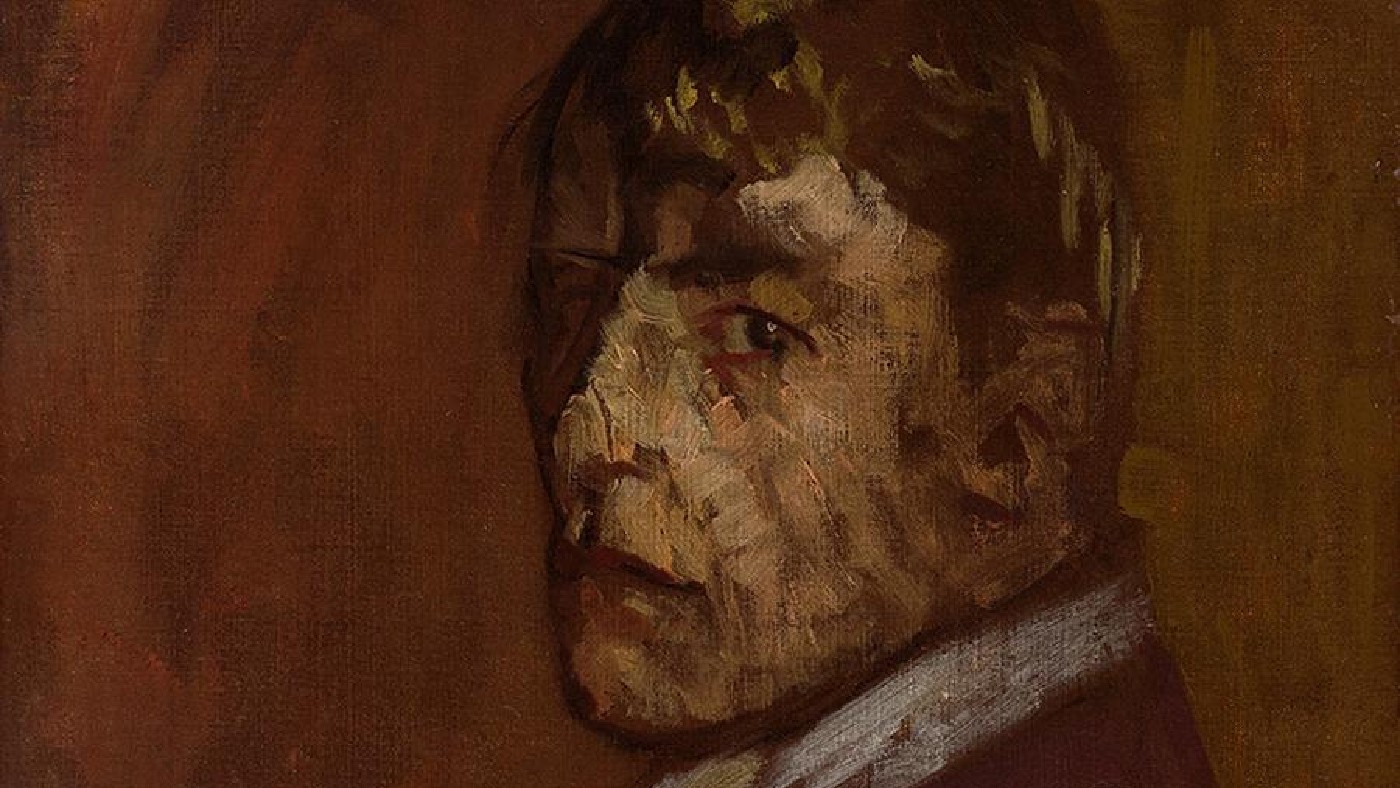Sickert: A Life in Art – macabre works tackling ‘the seedier aspects of urban life’
Works by painter best known for controversial Camden Town nudes displayed at Walker Art Gallery in Liverpool

A free daily email with the biggest news stories of the day – and the best features from TheWeek.com
You are now subscribed
Your newsletter sign-up was successful
Walter Sickert (1860-1942) detested the “effete” and decorous style of his late Victorian and Edwardian contemporaries, said Rachel Campbell-Johnston in The Times. The German-born British painter was determined to tackle the seedier aspects of urban life: drinkers, debtors, prostitutes.
His “most controversial contribution” to British art is the series of “sordid psychological studies” known as the Camden Town nudes. Inspired by the notorious “Camden Town murder” of 1907 – a young woman was found dead with her throat cut – he painted “women lying slumped or spreadeagled on squalid iron beds in dimly lit London rooms”.
These macabre works even gave rise to the “improbable” rumour, first circulated by a man claiming to be his son, that Sickert had committed the Jack-the-Ripper murders. But as this fascinating chronological tour of his career in Liverpool shows, Sickert’s work rises above the lurid “true crime” theories.
The Week
Escape your echo chamber. Get the facts behind the news, plus analysis from multiple perspectives.

Sign up for The Week's Free Newsletters
From our morning news briefing to a weekly Good News Newsletter, get the best of The Week delivered directly to your inbox.
From our morning news briefing to a weekly Good News Newsletter, get the best of The Week delivered directly to your inbox.
He was a “bravely modern” artist of great talent, effortlessly flitting “from portraits to townscapes to theatrical subjects and landscapes, from architectural paintings to domestic interiors to nudes”.

It’s no wonder, though, that Sickert was mistaken for the Ripper, said Jonathan Jones in The Guardian. He even referenced the killer in the title of a painting of his own flat, the “spooky, sensual” Jack the Ripper’s Bedroom (1906-07). Beyond this, his art is loaded with “hints of evil”: depictions of London music halls like Gallery of the Old Bedford (1894-95) have a ghoulish quality completely at odds with the jolly subject matter, hinting at some latently “savage sexuality”.
His nudes have the air of corpses – faces obscure, mouths rendered as black holes. Even his scenes of Venice transform the city – normally a pleasantly anodyne subject for artists – into an “architectural morgue”.
We should take Sickert’s dramatic paintings with a pinch of salt, said Alastair Sooke in The Daily Telegraph. Before committing himself to art, he was an actor– and “he never lost his taste for the theatrical”. His art brims with “melodrama”: an early self-portrait of 1896 sees him “gobbled up by shadow”, his skin “disintegrating”; elsewhere, we glimpse him in costume, sporting spectacles that “he didn’t need”, and even a chef’s hat.
A free daily email with the biggest news stories of the day – and the best features from TheWeek.com
The Camden Town nudes, meanwhile, show a canny appreciation of the “career-accelerating power of notoriety”. Yet however stagey they might seem, these paintings have great art-historical importance. Without Sickert’s “dirty” realism, “there’d be no Bacon, no Freud, no Auerbach”. This is “a tremendous show”.
Walker Art Gallery, Liverpool (0151-478-4199, liverpoolmuseums.org.uk). Until 27 February 2022
-
 How to Get to Heaven from Belfast: a ‘highly entertaining ride’
How to Get to Heaven from Belfast: a ‘highly entertaining ride’The Week Recommends Mystery-comedy from the creator of Derry Girls should be ‘your new binge-watch’
-
 The 8 best TV shows of the 1960s
The 8 best TV shows of the 1960sThe standout shows of this decade take viewers from outer space to the Wild West
-
 Microdramas are booming
Microdramas are boomingUnder the radar Scroll to watch a whole movie
-
 6 exquisite homes with vast acreage
6 exquisite homes with vast acreageFeature Featuring an off-the-grid contemporary home in New Mexico and lakefront farmhouse in Massachusetts
-
 Film reviews: ‘Wuthering Heights,’ ‘Good Luck, Have Fun, Don’t Die,’ and ‘Sirat’
Film reviews: ‘Wuthering Heights,’ ‘Good Luck, Have Fun, Don’t Die,’ and ‘Sirat’Feature An inconvenient love torments a would-be couple, a gonzo time traveler seeks to save humanity from AI, and a father’s desperate search goes deeply sideways
-
 A thrilling foodie city in northern Japan
A thrilling foodie city in northern JapanThe Week Recommends The food scene here is ‘unspoilt’ and ‘fun’
-
 Tourangelle-style pork with prunes recipe
Tourangelle-style pork with prunes recipeThe Week Recommends This traditional, rustic dish is a French classic
-
 Samurai: a ‘blockbuster’ display of Japan’s legendary warriors
Samurai: a ‘blockbuster’ display of Japan’s legendary warriorsThe Week Recommends British Museum show offers a ‘scintillating journey’ through ‘a world of gore, power and artistic beauty’
-
 BMW iX3: a ‘revolution’ for the German car brand
BMW iX3: a ‘revolution’ for the German car brandThe Week Recommends The electric SUV promises a ‘great balance between ride comfort and driving fun’
-
 Arcadia: Tom Stoppard’s ‘masterpiece’ makes a ‘triumphant’ return
Arcadia: Tom Stoppard’s ‘masterpiece’ makes a ‘triumphant’ returnThe Week Recommends Carrie Cracknell’s revival at the Old Vic ‘grips like a thriller’
-
 My Father’s Shadow: a ‘magically nimble’ love letter to Lagos
My Father’s Shadow: a ‘magically nimble’ love letter to LagosThe Week Recommends Akinola Davies Jr’s touching and ‘tender’ tale of two brothers in 1990s Nigeria